Health
Americans need more sleep, less stress, experts say, as Gallup poll reveals troubling findings
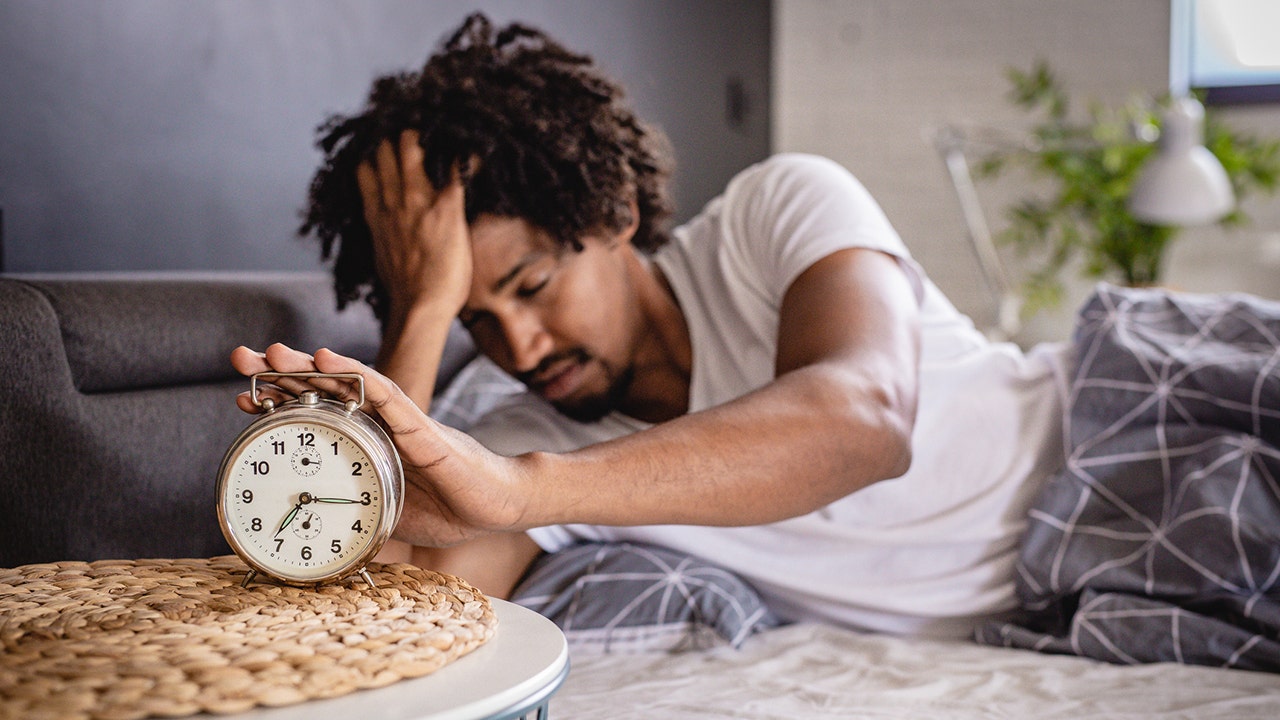
Many Americans are getting too little sleep and have too much stress.
A new Gallup poll revealed 57% of adults would “feel better if they got more sleep,” while 42% said they get “as much sleep as they need.”
These findings have nearly reversed in the last decade, Gallup noted in a press release. The last measurement in 2013 found that 56% of Americans got the sleep they needed while 43% did not.
LACK OF SLEEP COULD BE A FACTOR IN A ‘SILENT EPIDEMIC,’ EXPERTS WARN
Overall, however, Americans are getting fewer hours of sleep than they did in past decades.
In 1942, 59% of Americans were getting eight hours or more of sleep per night, while only 3% were getting five hours or less.
Fifty-seven percent of adults said they would “feel better if they got more sleep,” a new Gallup poll revealed. (iStock)
In 2024, only 25% of Americans get an average of eight hours of sleep, and 20% reported sleeping for five or less.
Young women are the least likely to get enough sleep, according to the study — with 36% of females versus 48% of males reporting getting enough shuteye.
SLEEP DISORDERS AND SUICIDE: A MENTAL HEALTH EXPERT REVEALS THE CONCERNING LINK
Sleep amounts for both men and women showed “significant declines from previous readings in 2013 and 2004,” according to Gallup — and are the lowest measured for each group to date.
The decline was found across all age groups, although young adults between ages 18 and 29 saw the smallest difference.
Stress-sleep connection
Gallup suggested that an uptick in stress could be driving this downward trend in sleep, as the American Psychological Association reports a “strong connection between stress and sleep quality.”
The poll showed that 63% of Americans who reported wanting more sleep also “frequently experience stress.”
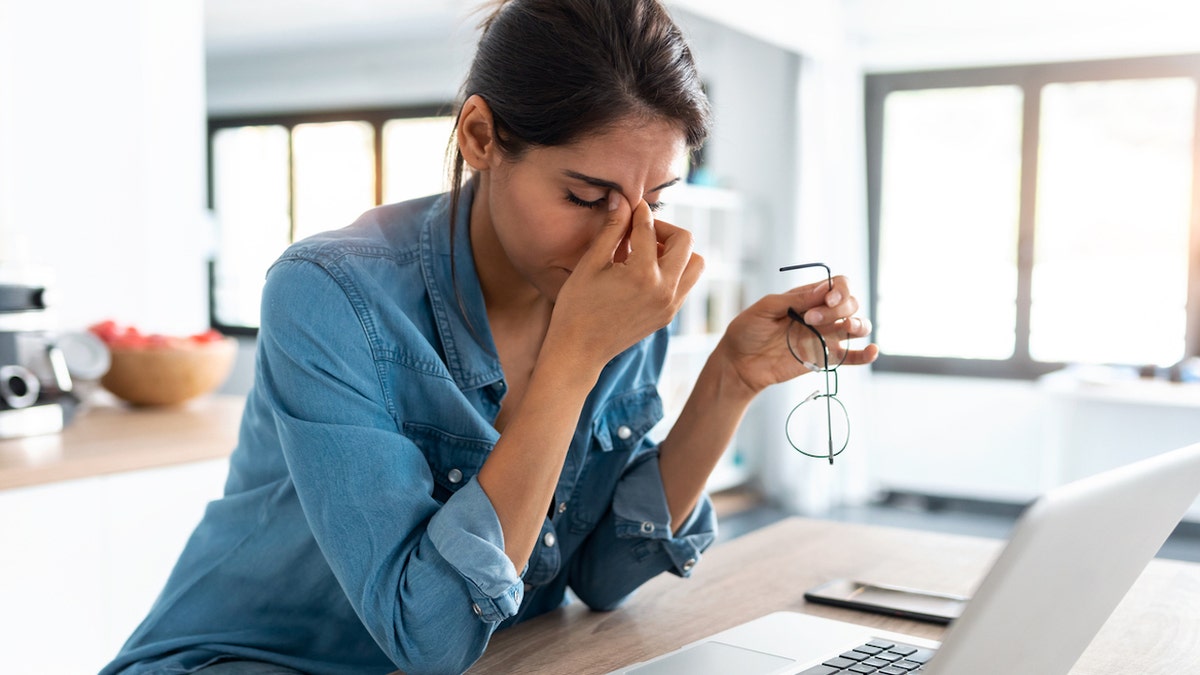
Women are most likely to frequently experience stress, the Gallup poll found. (iStock)
“Over the past 30 years, the number of Americans who are stressed has been on a steady incline after a sharp drop in 2003,” Gallup reported.
“The most recent data show that nearly half of all Americans, 49%, report frequently experiencing stress — up 16 points over the past two decades and the highest in Gallup’s trend to date.”
IMPROVE YOUR SLEEP BY OPTIMIZING 6 BIOMARKERS: ‘INTEGRAL TO HEALTH’
Young women are also most likely to frequently experience stress, “exceeding men their age by 14 points,” according to Gallup.
Dr. Marc Siegel, clinical professor of medicine at NYU Langone Medical Center and a Fox News medical contributor, confirmed this relationship between sleep and stress, calling it the “cycle of worry” during a Thursday appearance on “America’s Newsroom.”

Dr. Marc Siegel, clinical professor of medicine at NYU Langone Medical Center and a Fox News medical contributor, discussed the relationship between sleep and stress during a Thursday appearance on “America’s Newsroom.” He noted that exposure to the blue light of smartphone screens can keep people awake, among other issues. (Fox News)
“They’re connected,” he said.
“If you get more stressed, you don’t sleep; if you don’t sleep, you get more stressed.”
Siegel explained that “all of this spirals out of control,” since sleeplessness is often remedied with caffeine — yet caffeine “interferes with your sleep cycle.”
“If you get more stressed, you don’t sleep; if you don’t sleep, you get more stressed.”
The same goes for drinking alcohol before bed to induce sleep, which “wears off and you wake up in the middle of the night,” the doctor warned.
Exposure to the blue light of smartphone screens can keep people awake, Siegel said.
WANT TO BE A MORNING PERSON? THESE 6 EXPERT TIPS MAY GET YOU THERE
“All of this is very bad for health,” he said. “It leads to heart disease, it increases your risk of stroke, it causes you to gain weight.”
For young women in particular, several factors could be causing them to lose sleep, including the use of social media, which can “feed anxiety,” Siegel said.
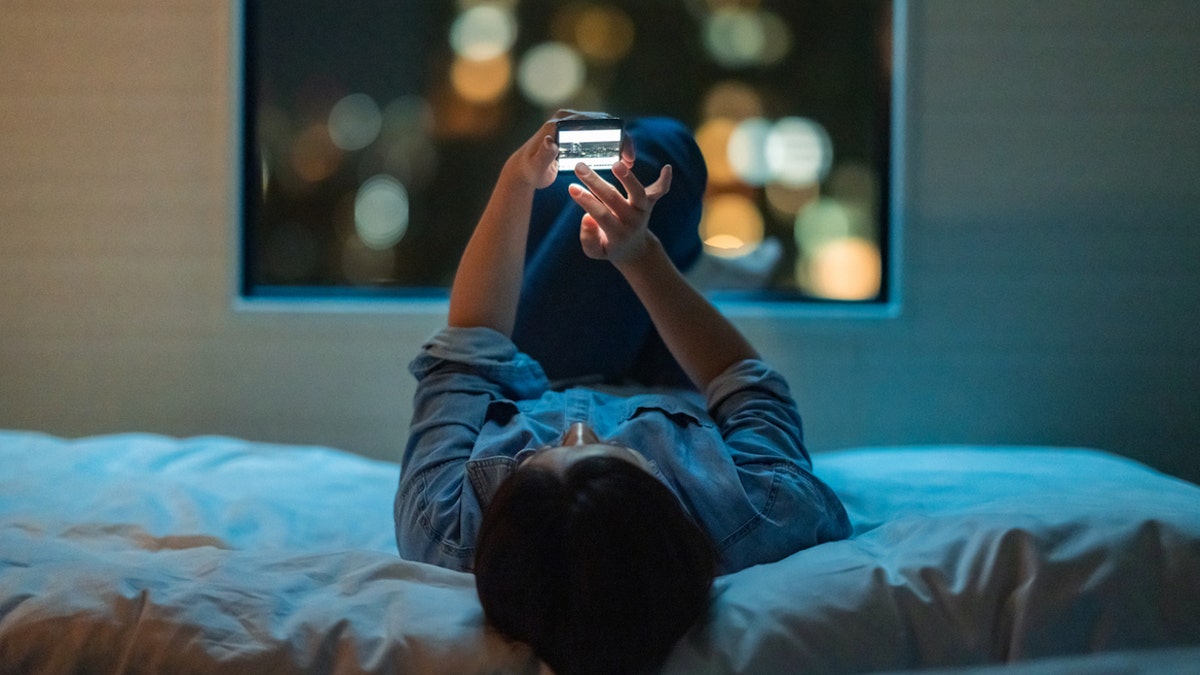
A potential fix to ending the sleep-stress cycle is practicing “sleep hygiene,” said one doctor, which includes sleeping in a dark room away from your cellphone. (iStock)
A potential fix for the sleep-stress cycle is practicing “sleep hygiene,” Siegel suggested, which includes sleeping in a dark room away from your cell phone.
“I treat stress and sleeplessness as the same thing,” he said. “That’s why I don’t believe in sleeping pills … You’re just covering up the problem.”
He added, “I want to get at why you’re worried and what I can do about the worry.”
SLEEPING WITH LIGHTS OFF AND CLOSED BLINDS MAY PROTECT YOUR HEALTH: STUDY
Dr. Wendy Troxel, a Utah-based sleep expert and senior behavioral scientist at the RAND Corporation, told Fox News Digital in an interview that stress levels have remained “very high” since the COVID pandemic.
“[For] populations navigating multiple demands, including young people who are going to school or starting new jobs in this topsy-turvy world, it’s understandable that they are experiencing increases in stress, and that’s manifesting increases in sleep disturbances,” she said.
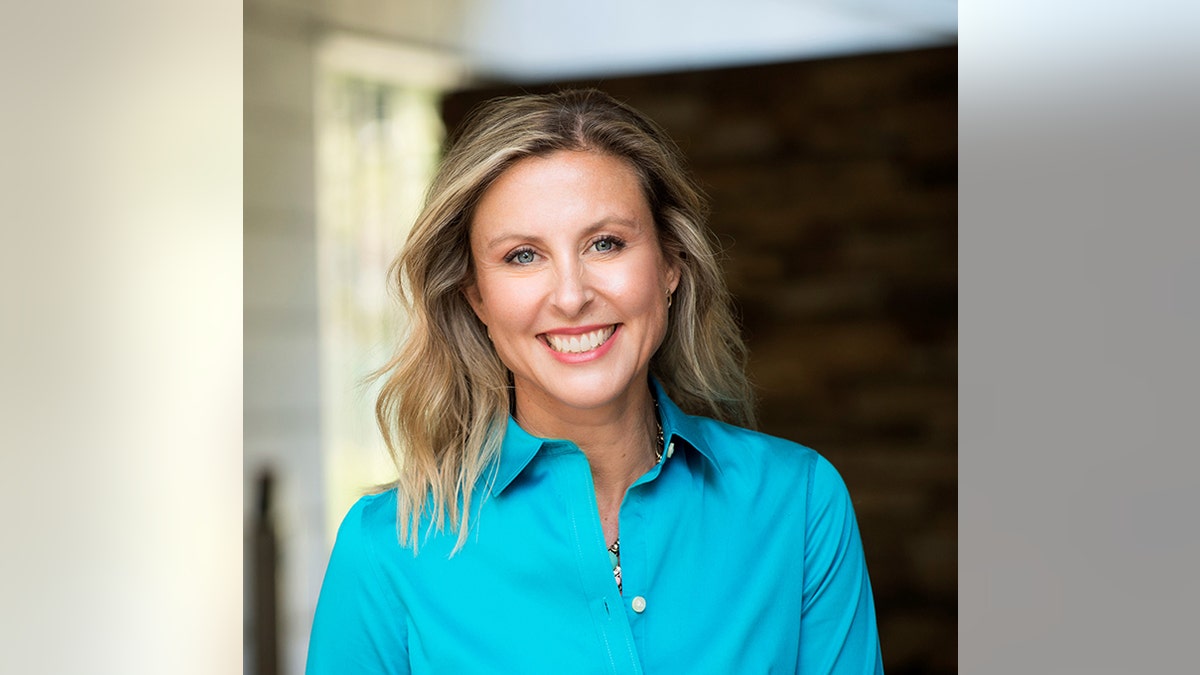
Dr. Wendy Troxel, senior behavioral scientist at RAND Corporation, is also the author of “Sharing the Covers: Every Couple’s Guide to Better Sleep” and scientific advisor for sleepfoundation.org. “As a culture,” she said, “we’ve become more aware of the importance of sleep over the past 10 years, which is a great thing.” (Diane Baldwin)
In some instances, Troxel pointed out, lack of sleep has been worn as a “badge of honor” to prove that people are busy or productive.
“But I think that that cultural misconception is starting to wane,” she said.
“The reality is, as a culture, we’ve just become more aware of the importance of sleep over the past 10 years, which is a great thing.”
CLICK HERE TO SIGN UP FOR OUR HEALTH NEWSLETTER
To break the “vicious cycle” of stress impacting sleep and vice versa, Troxel offered several tips, including maintaining a consistent sleep and wake schedule to ensure that stress doesn’t “invade your life.”
Incorporating a wind-down routine prior to bed can also bring down stress levels, the sleep expert noted.
These routines can involve relaxing activities such as deep breathing exercises, cuddling with a partner, journaling, doing gentle yoga or listening to music.
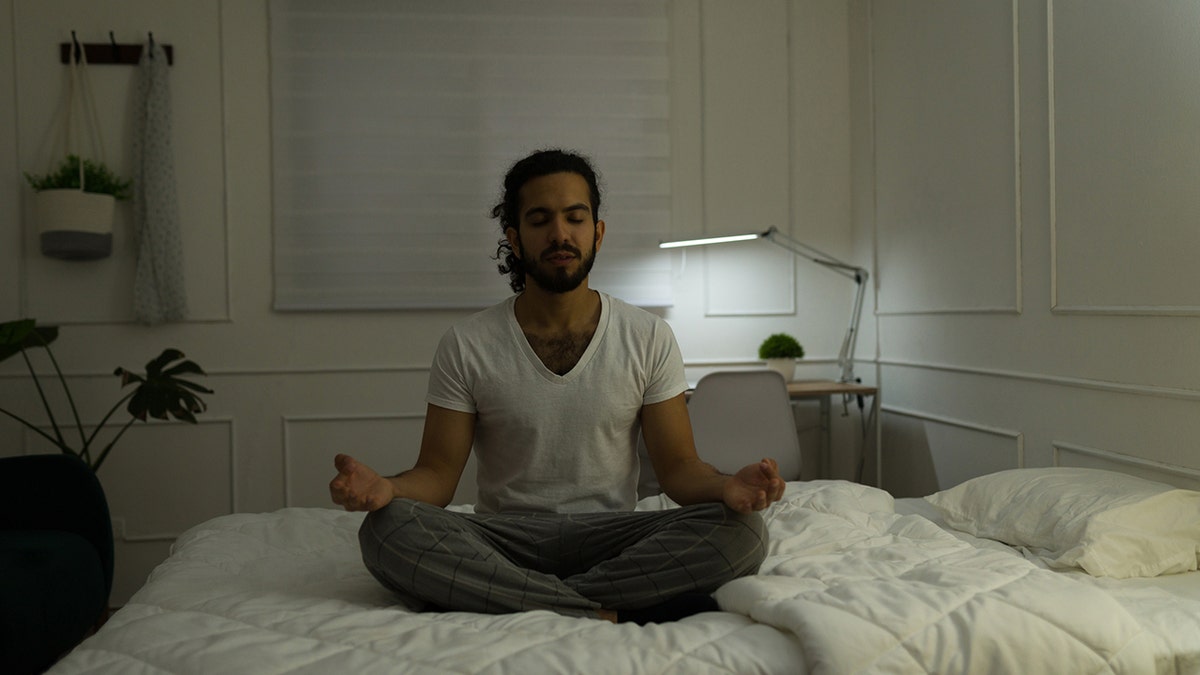
Wind-down activities before bed can include deep breathing exercises, cuddling with a partner, journaling, doing gentle yoga or listening to music. (iStock)
“It’s just about finding something that you can ritualize and do on a nightly basis to set the stage … to put aside all the demands and stress of the day and prepare for winding down and [going] to sleep,” Troxel said.
For people who wake up in the middle of the night due to stress, she advised getting out of bed, performing a wind-down activity and then returning to bed.
This technique, called stimulus control, prevents the brain from forming the habit of waking up at a certain time to ruminate on stressful thoughts.
“We all have occasional stress-related sleep disturbances, but if that starts happening night after night, it becomes habit-forming,” she said.
“And that’s where we see more chronic problems like insomnia. So, if you see that happening, treat it as a habit that your brain is learning — and break it.”
For more Health articles, visit foxnews.com/health.

Health
What Happens If You Eat Eggs Every Day? Nutritionists Share the Benefits

Sign Up
Create a free account to access exclusive content, play games, solve puzzles, test your pop-culture knowledge and receive special offers.
Already have an account? Login
Forgot your password?
Get back to the Sign In
Use left and right arrow keys to navigate between menu items.
Use escape to exit the menu.
Health
Ask a doctor: ‘I swallowed a bug — now what should I do?'
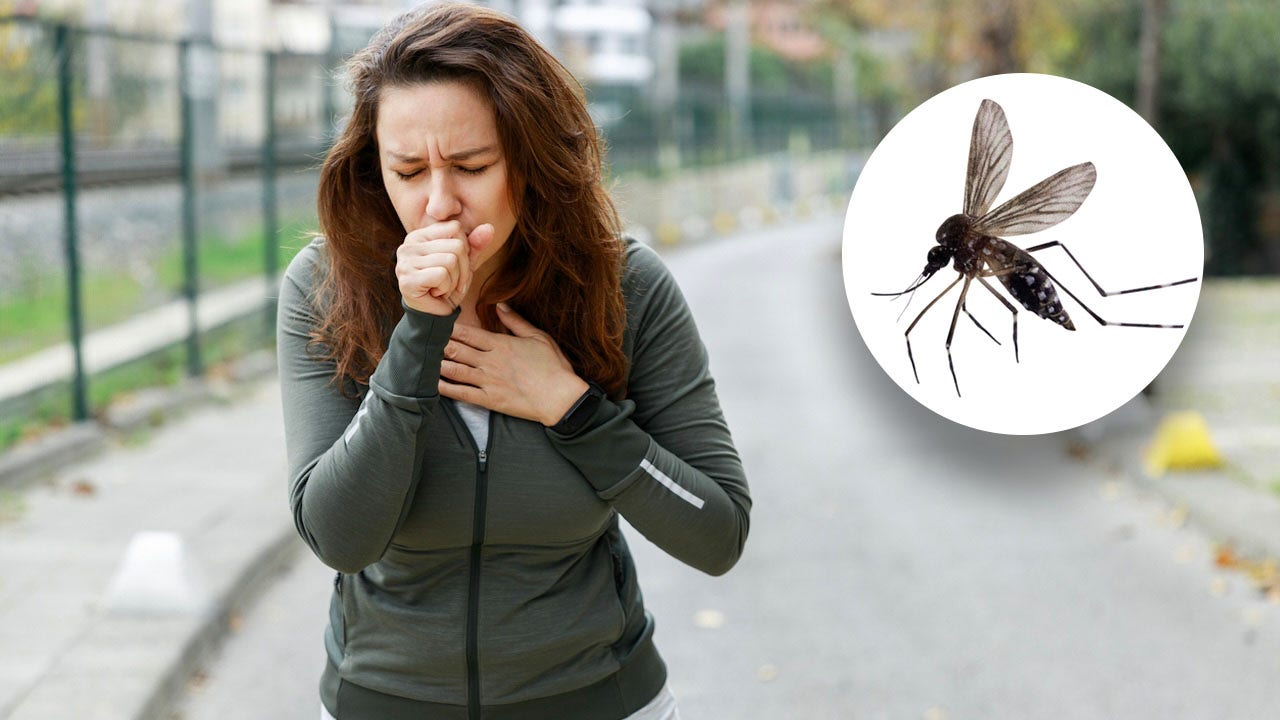
Most people have experienced that moment of discomfort when they realize a bug has wound up where it shouldn’t be — in their windpipe.
That includes Taylor Swift, who on more than one occasion has accidentally swallowed a bug while performing on stage in front of thousands of people.
It can be a startling and somewhat disgusting occurrence — but is this dangerous, or just a nuisance?
LOCAL DENGUE FEVER CASES CONFIRMED IN FLORIDA KEYS, SPREAD BY MOSQUITO BITES
Dr. Raj Dasgupta, a quadruple board-certified physician in California, shared with Fox News Digital the true impacts of accidentally swallowing a bug, and the best thing to do if it happens.
“Swallowing a bug can often happen accidentally when you’re eating or drinking outside, or if a bug flies into your mouth,” Dasgupta, who serves as chief medical advisor for Fortune Recommends, told Fox News Digital via email.
Dr. Raj Dasgupta, a quadruple board-certified physician in California, discussed the impact of accidentally swallowing a bug — and the best thing to do if it happens. (Sleepoplis)
“It can also happen if you’re talking or laughing outdoors. Sometimes it might even happen indoors if bugs are in your food or drink and you don’t realize it.”
ASK A DOCTOR: ‘HOW CAN I PREVENT SCARRING FROM BUG BITES AND POISON IVY?’
Swallowing a bug is usually not dangerous, Dasgupta noted.
“The stomach’s digestive acids usually break down the bug, and it is passed out of the body without causing harm,” he said.
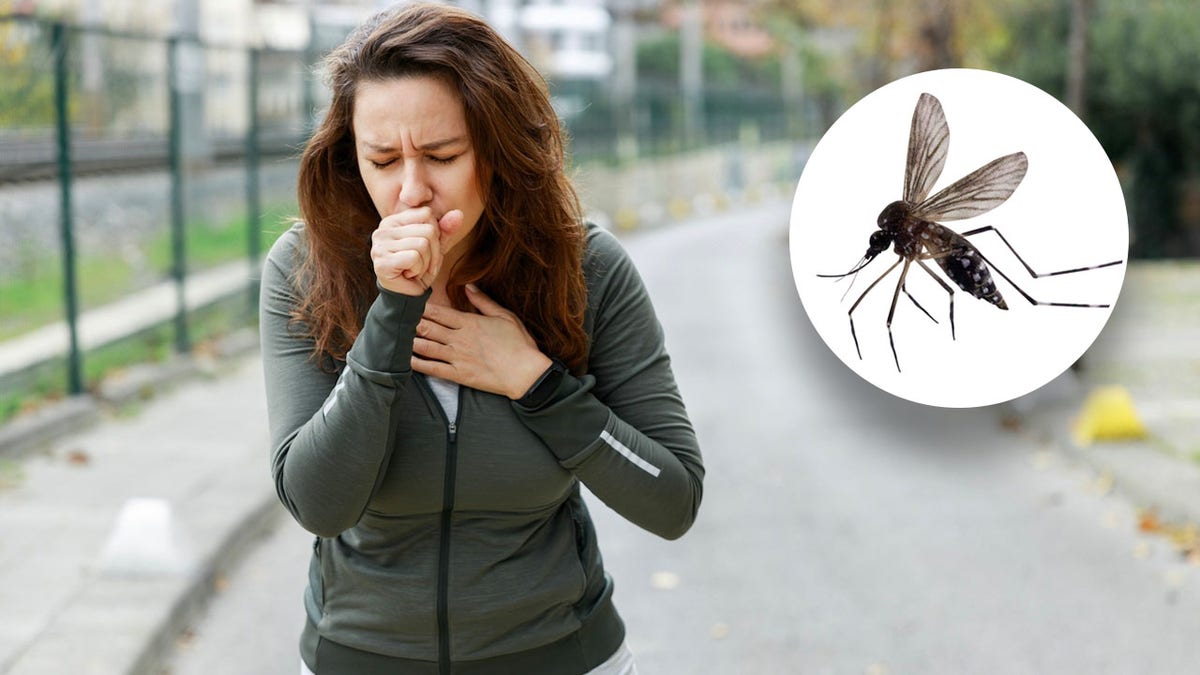
“Swallowing a bug can happen accidentally when you’re eating or drinking outside, or if a bug flies into your mouth,” the doctor told Fox News Digital. (iStock)
If the bug carries harmful bacteria or parasites, however, it could cause gastrointestinal issues or allergic reactions, according to the doctor.
The type of bug can make a difference, he said.
“Bugs like beetles or ants are less of a concern, but bugs that are known to spread diseases — such as mosquitoes — might be riskier.”
If you happen to swallow a bug, drinking some water can help wash it down, Dasgupta said.

Taylor Swift has announced the accidental swallowing of bugs, mid-concert, on more than one occasion. (Marcelo Endelli/TAS23/Getty Images for TAS Rights Management)
“If you start feeling sick, like abdominal pain, vomiting or nausea, keep an eye on your symptoms,” the doctor said.
If you have severe stomach pain, ongoing vomiting, trouble breathing, or swelling, rash or itching, Dasgupta said to see a doctor.
CLICK HERE TO SIGN UP FOR OUR HEALTH NEWSLETTER
“If you know the bug could have diseases or if you have health conditions that might complicate things, it’s a good idea to get checked out to be safe,” he added.
For more Health articles, visit www.foxnews/health
Some bugs — including grasshoppers, beetles, termites, mealworms and even stink bugs — are actually considered edible in certain countries, and are prepared and eaten as part of meals, according to WebMD’s website.
Health
“I’m a Dietitian, and Here’s Why an Overly Restrictive Diet Can Backfire”

Sign Up
Create a free account to access exclusive content, play games, solve puzzles, test your pop-culture knowledge and receive special offers.
Already have an account? Login
Forgot your password?
Get back to the Sign In
Use left and right arrow keys to navigate between menu items.
Use escape to exit the menu.
-

 World1 week ago
World1 week agoOne dead after car crashes into restaurant in Paris
-

 Midwest1 week ago
Midwest1 week agoMichigan rep posts video response to Stephen Colbert's joke about his RNC speech: 'Touché'
-

 News1 week ago
News1 week agoVideo: Young Republicans on Why Their Party Isn’t Reaching Gen Z (And What They Can Do About It)
-

 News1 week ago
News1 week agoIn Milwaukee, Black Voters Struggle to Find a Home With Either Party
-

 Politics1 week ago
Politics1 week agoFox News Politics: The Call is Coming from Inside the House
-

 News1 week ago
News1 week agoVideo: J.D. Vance Accepts Vice-Presidential Nomination
-

 Movie Reviews1 week ago
Movie Reviews1 week agoMovie Review: A new generation drives into the storm in rousing ‘Twisters’
-

 World1 week ago
World1 week agoTrump to take RNC stage for first speech since assassination attempt















